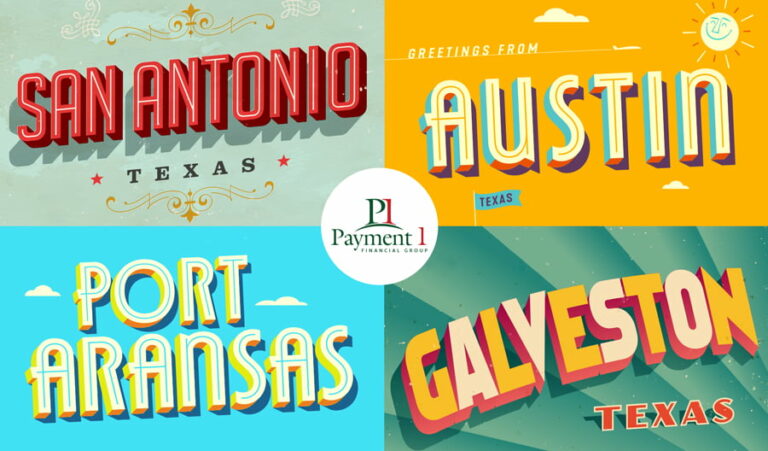Payday Loans in Texas: Understanding the Risks and Alternatives

Payday loans have become popular in Texas, particularly among people facing financial emergencies. According to a new Pew Research Center study, Texas consumers paid $1.5 billion in payday loan fees in 2021. A study by the Perryman Group and social justice advocacy groups found that one in 15 Texans has taken out a payday loan.
Before deciding on taking out a payday loan to address an urgent financial need, it is crucial to understand what payday loans are and why they are widely seen as extremely expensive. Let’s explore payday loans in Texas, the associated risks, and the alternatives worth considering.
What are payday loans?
A payday loan, also known as a cash advance loan or check advance loan, is a type of short-term borrowing in which a lender immediately extends credit to you based on your income. They are unsecured personal loans with high-interest rates and no collateral requirements. These loans disregard a borrower’s ability to repay and may contain hidden provisions that result in additional fees—and this is why it’s widely considered predatory lending.
Payday loan lenders will typically request proof of your income, often through pay stubs from your employer. They will lend you a portion of your expected earnings based on this information. However, you will be required to repay the loan within a short period, usually 30 days or less.
How expensive are payday loans in Texas?
Texas is one of the most expensive states for consumers to borrow money in, according to the same Pew Research Center study. In Texas, if you need a $500 loan to get you through until your next paycheck, the average borrower must repay the principal plus $645 in interest. According to the regulatory data of the state in 2022 referenced in the study, the typical payday loan borrower was required to pay fees and interest amounting to 527% of the loan value over a four-month repayment period. Only Utah, Nevada, and Idaho had higher average rates in comparison.
Payday lenders frequently charge the maximum allowable loan fees allowed by state law and only offer lower interest rates when required.
What laws govern payday loans in Texas?
Texas has complex and lenient payday loan regulations compared to other states. Four specific sections govern the licensing of entities involved in payday lending activities. These sections are identified as Fin. Ann. Code. §341, Tex. Fin. Ann. Code. §342, Fin. Ann. Code. 393, and 7 Tex. Admin. Code §83 Subchapter B.
However, the effectiveness of these regulations relies on the weakest link, Tex. Fin. Ann. Code. §393. This section allows payday lenders to acquire a license as a credit access business, serving as intermediaries between consumers and third-party lenders. There are virtually no state-level limits on these credit access businesses in Texas regarding the fees they charge.
What are the risks involved in taking out payday loans in Texas?
While payday loans may appear convenient, they carry significant risks that can lead to a debt cycle. The primary source of concern is the high-interest rates associated with these loans. Payday lenders frequently charge exorbitant interest rates and fees, making it difficult for you to repay the loan completely. As a result, you are likely to be trapped in a never-ending cycle of borrowing to cover previous loans.
Another risk of payday loans is their impact on credit scores. If you do not repay the loan on time, your credit score will suffer, making it even more difficult to get better loan options. This is especially harmful if you already have poor credit.
Payday loan alternatives
When faced with a financial emergency, it is important to approach the situation cautiously and avoid the temptation to use payday loans as a quick fix. Take the time to look into alternatives that may provide more manageable and sustainable solutions. These alternatives offer several advantages over payday loans, such as lower interest rates, flexible repayment options, and a reduced risk of falling into a cycle of debt.
- Credit unions and community development financial institutions (CDFIs) offer low-interest loans with flexible repayment terms, allowing you to borrow money without paying extremely high fees or becoming trapped in debt.
- Many landlords, mortgage lenders, and utility companies provide payment plans to assist you with your financial difficulties. They might be gracious enough to grant payment extensions or let you set up payment plans for your bills.
- Another viable and safer alternative is seeking the help of local nonprofits and charities. They offer free help to those who need to balance their basic needs with a new financial emergency.
- A side hustle can also help you raise funds for your financial emergency. Consider selling clothes, turning a hobby into an online business, or driving for a ridesharing company.
- Family loans can be a viable option if you know of someone you are comfortable enough to ask. Remember that you are risking your relationship, so ensure both parties are comfortable with it.
- You can also take out personal loans from reputable lenders specializing in working with people with bad credit that can provide you with the funds you need without subjecting yourself to predatory lending practices.
A personal loan from Payment1 is a reliable alternative to payday loans. You can access instant funding through a simple online process. This eliminates extensive paperwork, and you’ll receive the money directly on your debit card.
Payment1 also understands the value of flexibility and offers various payment plans, including weekly, biweekly, monthly, or semi-monthly options. You can choose a repayment schedule that suits your financial situation and budget.
Contact us today to learn more.


